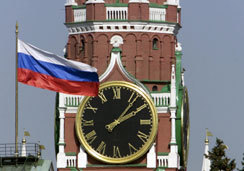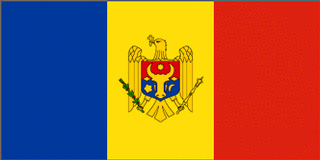Hungary's government has pushed through a law to undermine the independence of the central bank
Published:
30 November 2004 y., Tuesday
Hungary's government has pushed through a law to undermine the independence of the central bank. The clear intention is to force down central Europe's highest interest rates, even though the politicisation of monetary policy runs contrary to the principles of the euro zone – which Hungary is obliged to join. Yet it is unlikely to cause the country any more problems in its tortuous progress towards adopting the single currency.
The National Bank of Hungary (NBH, the central bank) said on November 24th it would challenge in the Constitutional Court a law passed by parliament to dilute the NBH's independence. Currently, the governor of the NBH and three deputy governors sit on the interest rate-setting Monetary Council; 3-5 other members are nominated by the governor and named by the state president with the approval of the prime minister.
Under the new law, approved on November 22nd, two deputy governors will lose their place on the Monetary Council, the governor will have the right to nominate four other members and the president will directly appoint the remainder (3-5). Because the government has backed away from dismissing any of the deputy governors immediately, all three will remain until their mandates expire in 2007. However, the government (formally the president) will have the right to appoint up to four members immediately. Assuming that this happens, the Monetary Council could have 13 members until 2007, when the number would fall to 11.
Šaltinis:
viewswire.com
Copying, publishing, announcing any information from the News.lt portal without written permission of News.lt editorial office is prohibited.
The most popular articles
 The European Commission approved an application from Spain for assistance from the EU Globalisation Adjustment Fund (EGF).
more »
The European Commission approved an application from Spain for assistance from the EU Globalisation Adjustment Fund (EGF).
more »
 The European Commission today reiterated the potential of existing EU-rules on mediation in cross-border legal disputes, reminding Member States that these measures can only be effective if put in place by Member States at national level.
more »
The European Commission today reiterated the potential of existing EU-rules on mediation in cross-border legal disputes, reminding Member States that these measures can only be effective if put in place by Member States at national level.
more »
 Exports of animals and animal products from the European Union to Russia are expected to receive a boost after five new certificates for exports between the EU and the Russian Federation entered into force on August 15.
more »
Exports of animals and animal products from the European Union to Russia are expected to receive a boost after five new certificates for exports between the EU and the Russian Federation entered into force on August 15.
more »
 World Bank Group President Robert B. Zoellick visited Moldova on August 11-12 at the invitation of Prime Minister Vlad Filat.
more »
World Bank Group President Robert B. Zoellick visited Moldova on August 11-12 at the invitation of Prime Minister Vlad Filat.
more »
 These are the financial results of the banking activities of the Danske Bank Group in Lithuania (Danske Bankas and Danske Lizingas UAB).
more »
These are the financial results of the banking activities of the Danske Bank Group in Lithuania (Danske Bankas and Danske Lizingas UAB).
more »
 The European Investment Bank (EIB) today signed its first loan agreement with Armenia.
more »
The European Investment Bank (EIB) today signed its first loan agreement with Armenia.
more »
 Given the worsening food crisis in the Sahel, the Commission today agreed to disburse €14.9 million for food security in Niger, the worst affected country in the area.
more »
Given the worsening food crisis in the Sahel, the Commission today agreed to disburse €14.9 million for food security in Niger, the worst affected country in the area.
more »
 The European Commission has cleared under the EU Merger Regulation the proposed restructuring of Arnotts' debts in return for a transfer of control to Anglo Irish Bank and Royal Bank of Scotland (RBS).
more »
The European Commission has cleared under the EU Merger Regulation the proposed restructuring of Arnotts' debts in return for a transfer of control to Anglo Irish Bank and Royal Bank of Scotland (RBS).
more »
 The European Commission today approved a new financial support package of €135 million for Morocco.
more »
The European Commission today approved a new financial support package of €135 million for Morocco.
more »
 The European Commission is allocating an extra €10 million in humanitarian aid for Liberia.
more »
The European Commission is allocating an extra €10 million in humanitarian aid for Liberia.
more »